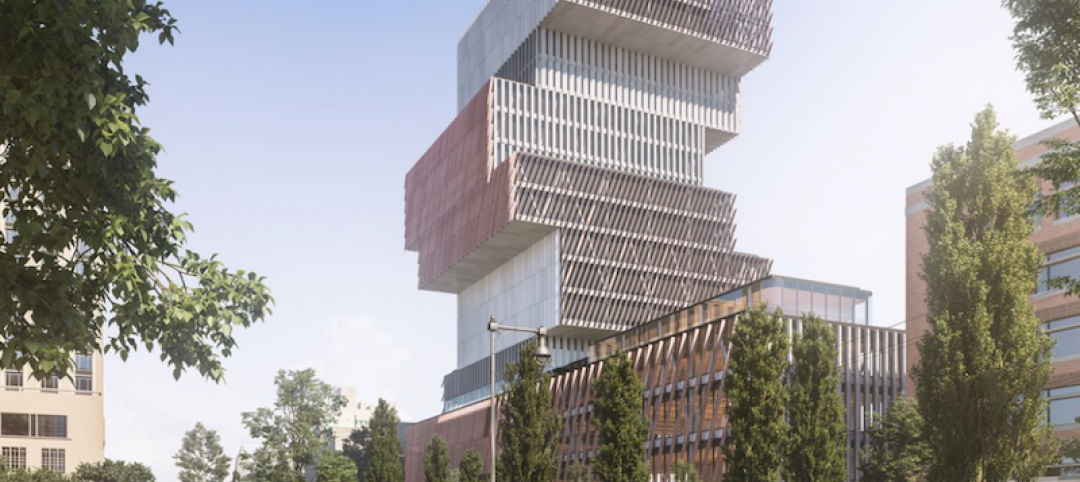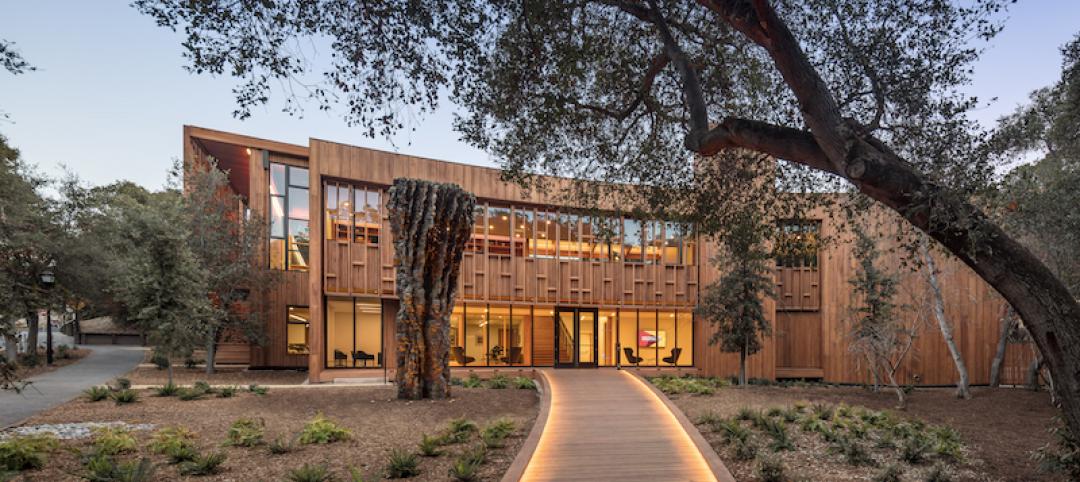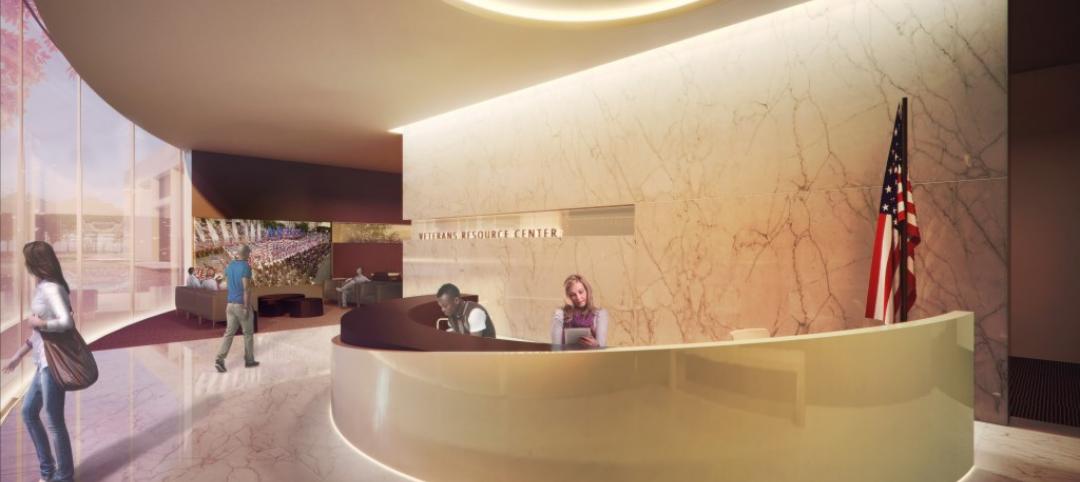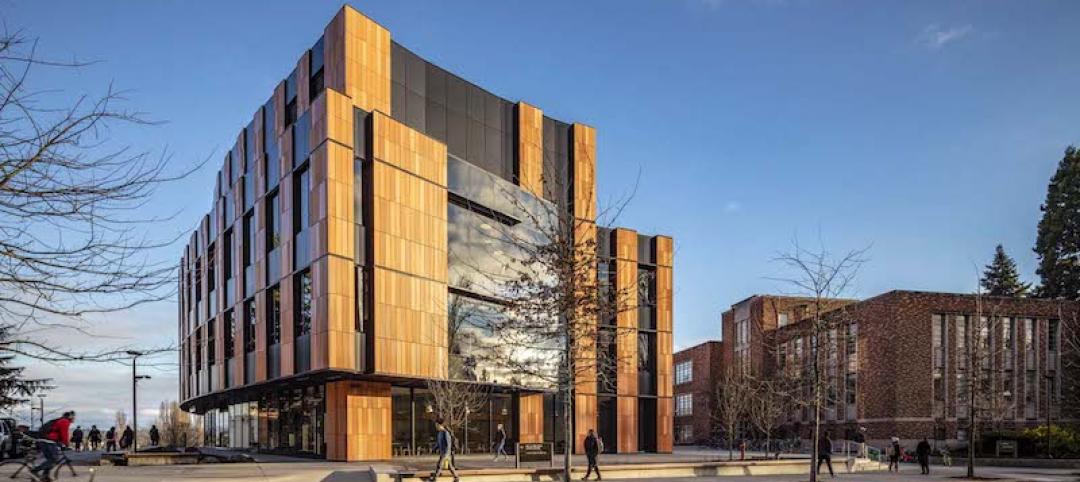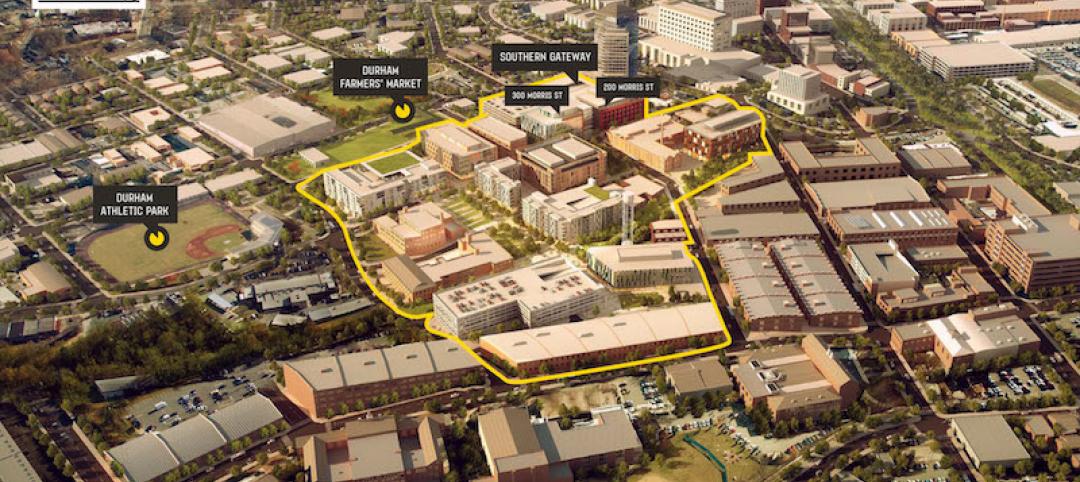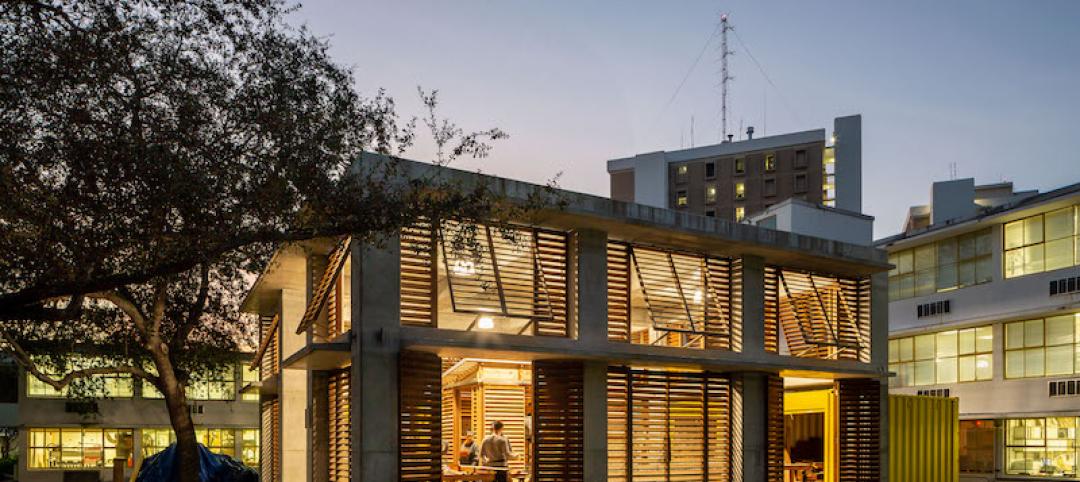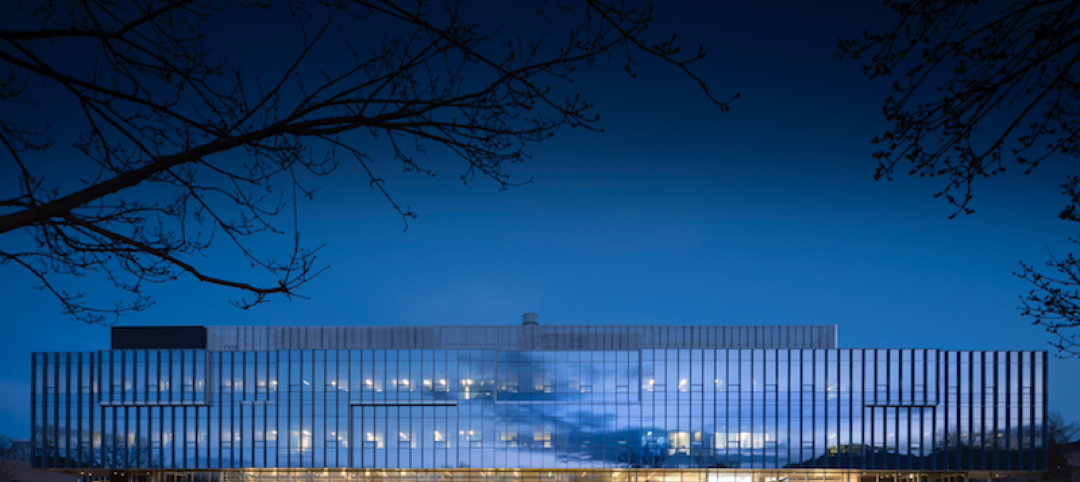Perkins and Will and Ryerson University have recently unveiled the new Daphne Cockwell Health Sciences Complex in downtown Toronto. The 28-story tower will connect students to the vibrancy of the city while also unifying Ryerson’s academic and residential functions.
Perkins and Will’s Toronto and Vancouver studios conceived the project as a vertical campus typology, the first of its kind for Ryerson University. The design adapts Toronto’s prevalent podium-tower model, lifting the building’s volumes to create an active streetscape and continuous public spaces from the ground level to the roof.
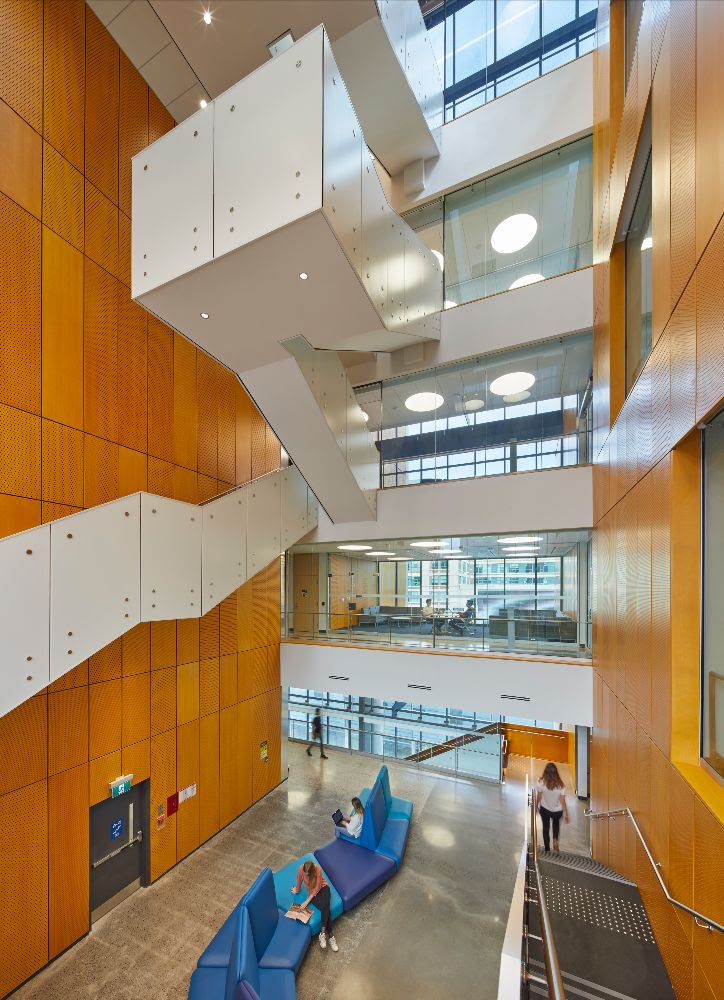
The nearly 300,000-sf building is located on the eastern edge of Ryerson’s campus and has become a new gateway into the campus from the east side. The building is clad in white aluminum panels and accented with orange. The orange threads visually represent the public spaces that are woven throughout the building, putting its activities on display.
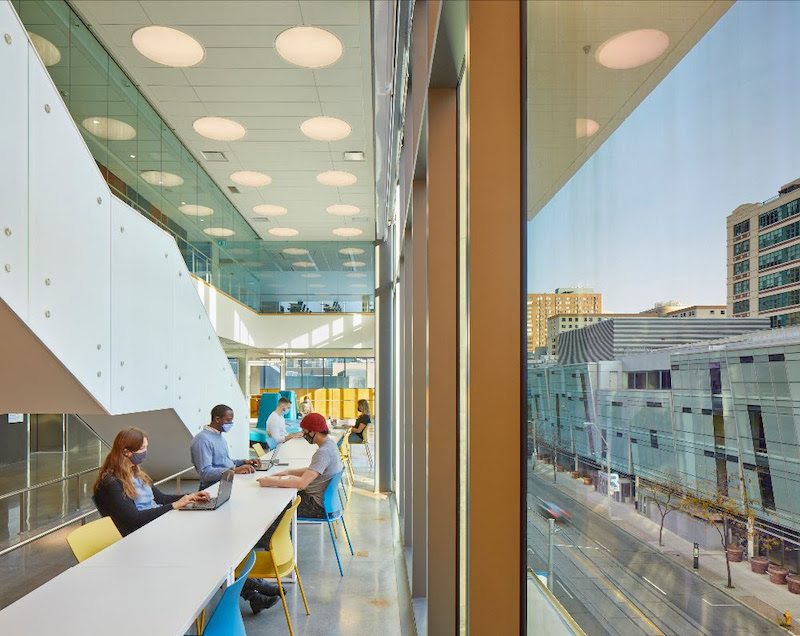
Four academic departments (Nursing, Midwifery, Nutrition, and Occupational and Public Health) are integrated within the first eight stories. The programs are supported by a variety of new classrooms, teaching kitchens, and labs. A Digital Fabrication lab, visible from the public realm, and flexible research facilities are also included. Residence dorms rise above 18 stories and house up to 330 students.
At pedestrian level a public atrium includes a cafe and spaces to socialize and study, creating new porosity with connections that link the city to the heart of the campus. Large windows help to create a seamless indoor-outdoor transition.
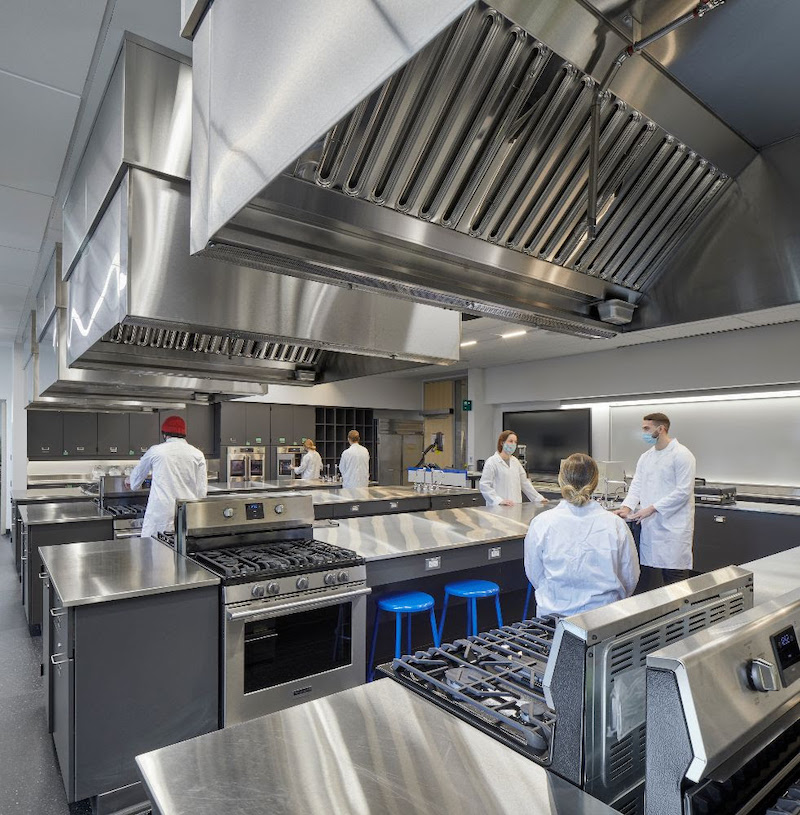
The Complex is also outfitted with machine-learning systems and sustainable technologies, such as a green roof that acts as an urban farm for the ground-floor cafe and a greywater system for faucets, toilets, and showers.
The Daphne Cockwell Health Sciences Complex was designed to achieve LEED Gold certification. It is expected to use 32% less energy and consume 35% less potable water than traditional construction. A metering and monitoring system allows the residence students to view their energy and water consumption online.
The building officially completed in 2019.
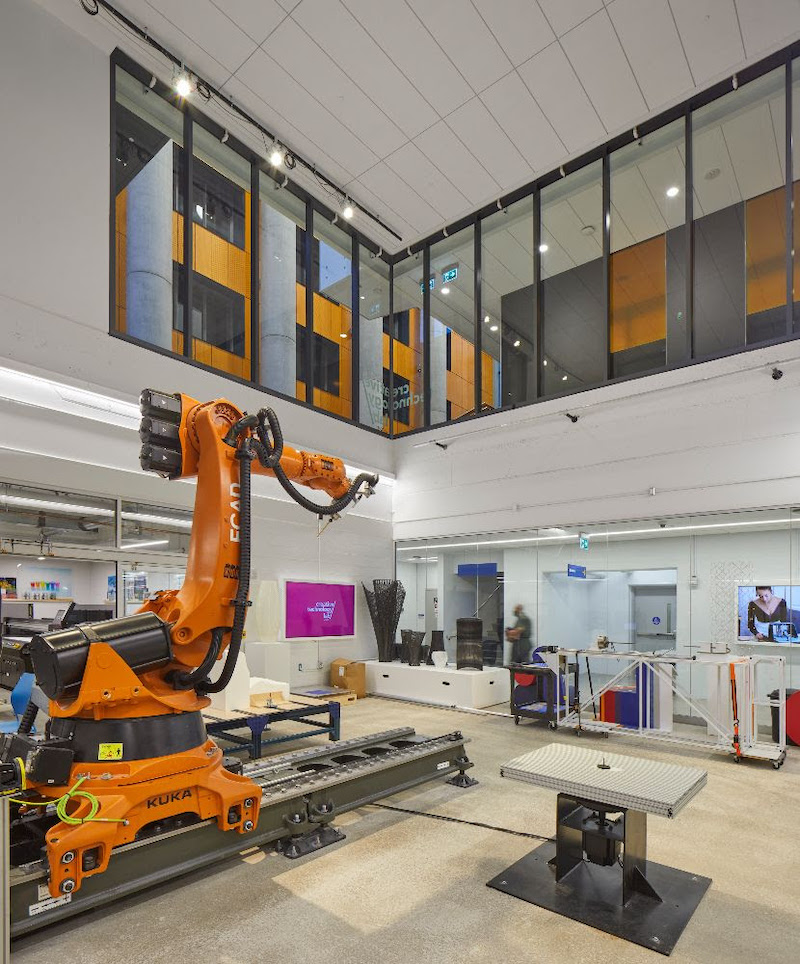
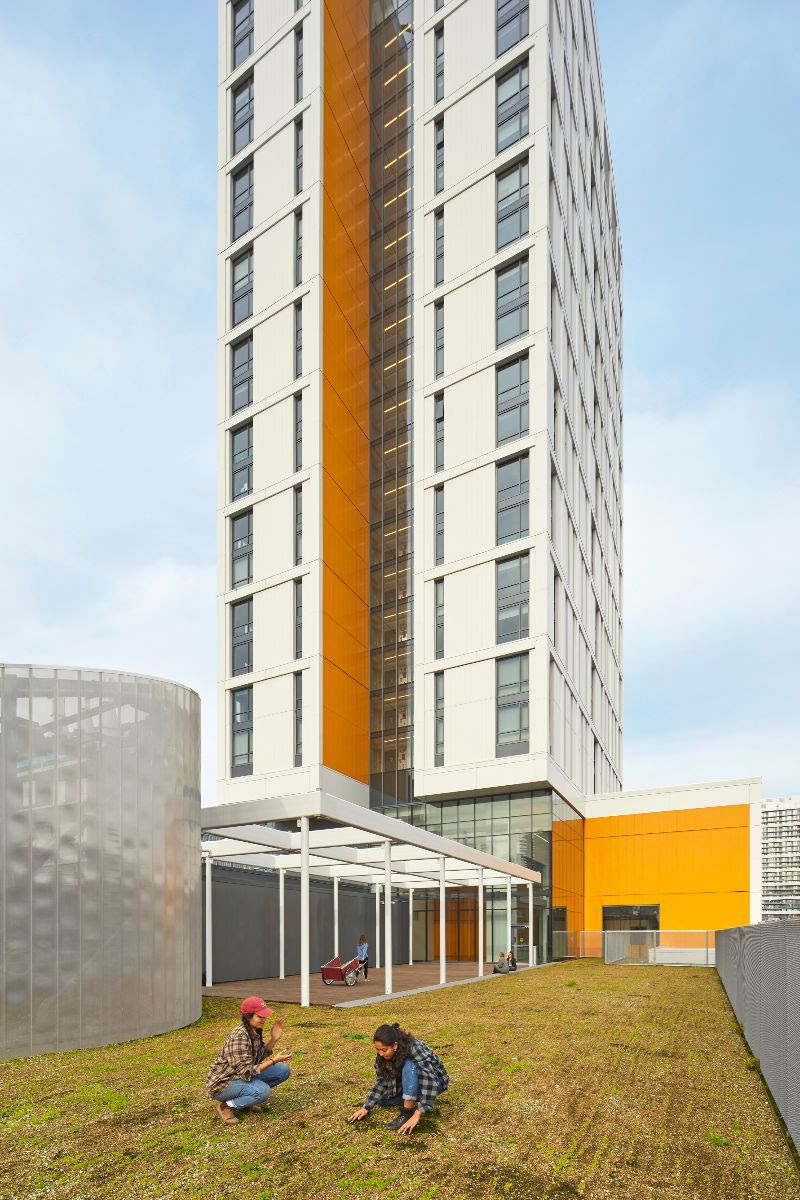
Related Stories
University Buildings | Apr 9, 2019
17-story Data Sciences building to rise on Boston University campus
KPMB Architects is designing the project.
University Buildings | Apr 2, 2019
Denning House completes at Stanford University
Ennead Architects designed the building.
University Buildings | Mar 28, 2019
Tulane University’s new student center combines the old and the new
StudioWTA designed the building.
University Buildings | Mar 27, 2019
Veterans Resource Center at Cypress College breaks ground
Sundt Construction is building the project.
University Buildings | Mar 26, 2019
The Bill & Melinda Gates Center for Computer Science & Engineering opens on the University of Washington campus
LMN Architects designed the facility.
Mixed-Use | Feb 21, 2019
An R&D-oriented innovation district is taking shape in the heart of Durham, N.C.
Its buildout has included converting old tobacco warehouses into offices and labs.
University Buildings | Feb 1, 2019
University of Miami design/build program receives new immersive-learning facility
Professor Rocco Ceo designed the studio space.
University Buildings | Jan 29, 2019
The Colorado School of Mines CoorsTek Center opens
Bohlin Cywinski Jackson designed the building.
University Buildings | Dec 17, 2018
SCUP and University of Pennsylvania School of Nursing release study results on lactation policy and facilities in U.S. higher education
There is a wide variability between how campuses accommodate the needs of breastfeeding mothers.
University Buildings | Dec 12, 2018
New Life Science Building at University of Washington designed for the next generation of research and teaching
Perkins+Will designed the facility.



